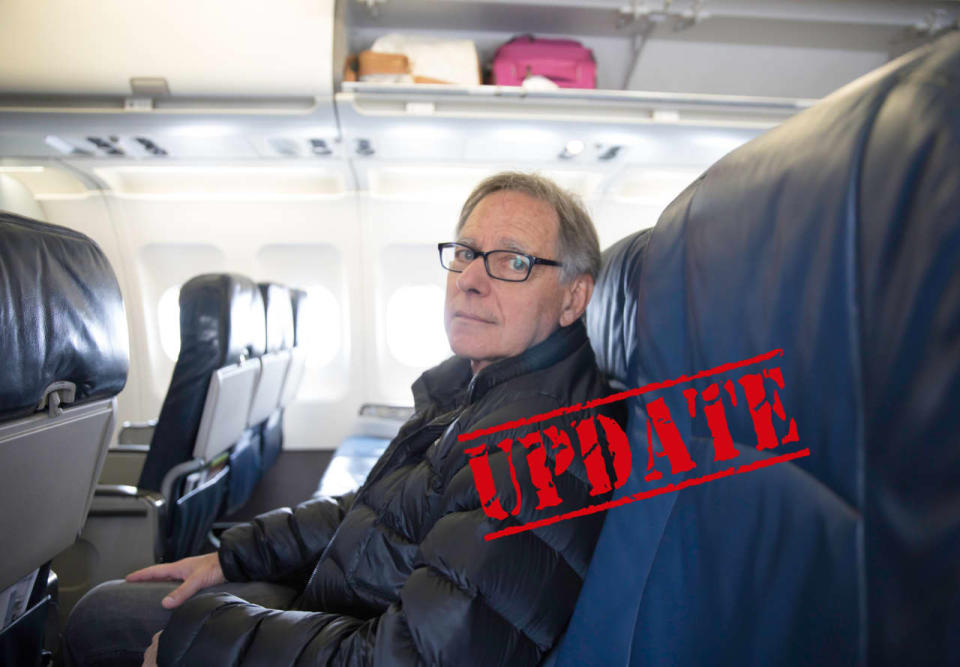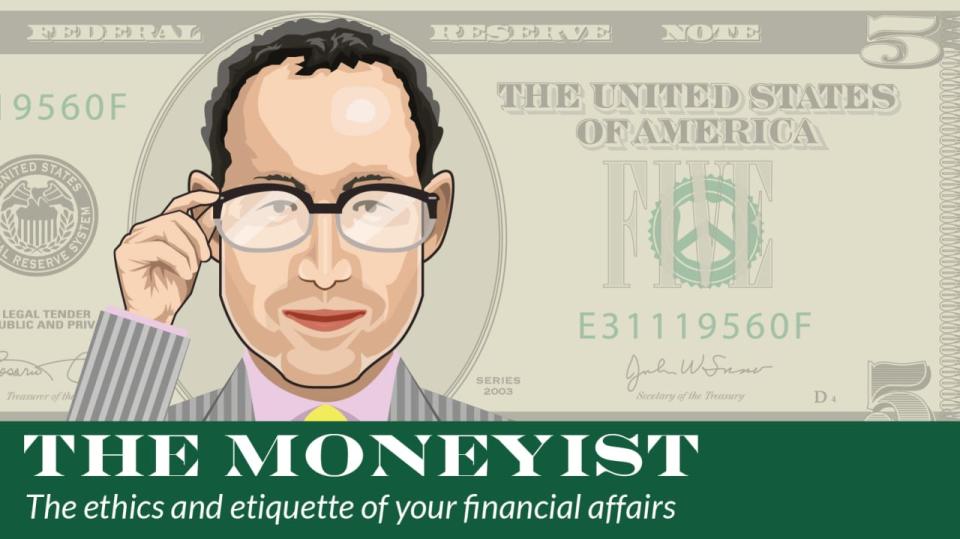
Dear Quentin,
Remember me? I wrote to you two weeks ago about the mother and daughter who sprinted into two premium-economy seats without paying. I told you I was unhappy that I had to pay $70 while these people took seats for free without any argument from the flight attendants.
I heard back from American Airlines AAL. First, the airline acknowledged that it never responded specifically to my issue. Second, it apologized. Third, it said it would give me a partial refund of the frequent-flyer miles for acquiescing to the seat-grabbing passengers.
Most Read from MarketWatch
It’s a very ugly American trait and one embedded in American history — entitled land grabbers showing a lack of any charitable consideration, as in asking an elderly person or overweight person if they might want one of those seats. That is simply not in the American mindset.
That woman and her mother were selfish and self-interested, and believed that they were entitled to get those seats. I also think your comment about me paying for a “guarantee” of an upgrade rather than an upgrade is not on point, because when we buy any seat that is what we are buying.
I think most people would be enraged if a person from the main cabin ran up to first class and grabbed an empty seat and got away with it. I am glad that they have finally shown me some respect. I have a sneaking suspicion that they saw your column.
Via La Complainers


Dear Viva,
Comparing premium-economy upstarts to early settlers is a leap for this first-world problem. Not all historians or anthropologists would agree with you. But I agree with your underlying point: Just because a seat is free on a plane or in a restaurant or a theater does not make it ours.
It would have been proper order if the seat jumpers had asked the flight attendant before moving. Musical chairs at 30,000 feet is stressful, but so is taking issue with the airline about their seat jumping. An eye roll from you would have taken care of the issue just the same.
Still, the airline was smart to split the cost of the upgrade with you, given that you are no doubt a valuable customer. Given the often restrictive change policies airlines impose on customers, and wildly fluctuating dynamic pricing, it also makes a refreshing and welcome change.
It’s possible that an airline representative did read the column because it is our policy to reach out to companies to give them the right of reply. But they did not have your name, so it’s less certain that the decision to give you a partial refund was because you took your problem public.
Choose your battles wisely
While I take your point about flight attendants and passengers giving priority to those who may benefit from more legroom, I (still) don’t believe you would slink back to economy if you were given an upgrade to first class if a first-class passenger complained.
Flight attendants have the discretion to allow passengers to occupy empty rows or nicer seats if it makes their trip more comfortable, especially on long-haul flights. They want to get you from A to B safely; the rest is goodwill. Ultimately, this is not a consumer-rights hill you want to die on.
They are there primarily for your safety, and it’s not always possible to police the seats, and ensure that a basic-economy customer is not occupying a premium-economy seat. If there’s an empty row on a long-haul flight, sometimes it’s the luck of the draw.
Frankly, flight attendants put up with a lot, especially dealing with the general public. A rake of research examined the health status of cabin crews “and found significantly more sleep problems, depression, anxiety and fatigue than in the average population.”
“Fatigue is favored by night work, a very early start of work, long flying hours, long time shifts and impairment of the biorhythm,” it added. Their work day starts with a commute to the airport, and being stuck on a plane for several hours means they are always “on.”
Irregular working hours
Don’t discount the east/west coast jet lag. “In the case of national flights, a very early beginning or very late end of duty, but also irregularly structured duty schedules have been identified as problematic,” according to this review of a batch of research over the three decades.
“In general, irregular working hours, due to shift work and/or night work, can increase the incidence of physical and psychological problems,” the paper added. Add to that the trouble that passengers behaving badly have wrought on staff since the COVID pandemic.
And they are not exactly overpaid for having to put up with all of the quirks and queries from tired, emotional and, to your point, often cramped passengers. The median annual wage for flight attendants hovers at around $68,370, according to the Bureau of Labor Statistics.
On the plus side, this is a profession in demand. Job growth for flight attendants is expected to average 11% over the next decade, significantly more than the 3% for all occupations, partly due to workers transferring to other industries and/or retiring, the BLS says.
Flying the flag for working stiffs
Yes, once again the Moneyist is flying the flag for working stiffs. Maybe it’s because we need to remember the emotional labor, health risks and stamina that it takes to be a service worker, particularly one who works inside a titanium, steel and aluminum box in the sky.
We can all be that cranky passenger or premium-economy princess who expects to be treated in a certain way. As I noted in my original reply, I did battle with a standby passenger who wanted to take an aisle seat in my row, which would have prevented me from stretching out and sleeping.
Sometimes, “we” are the problem: Whether we are sitting in our local restaurant and reeling because we didn’t get our favorite seat, or telling our Uber UBER driver to step on it, or even blaming overworked nurses for a medical system that is grossly underfunded and overstressed.
Ultimately, it’s important to distinguish between the problems we have with an industry, which may have frustrating and perplexing policies, from the people in that industry. For the most part, you appear to have done so and, for that, you deserve a Consumer Complainer of the Year pin.
It’s an invisible pin, so you can wear it with pride.
More columns from Quentin Fottrell:





